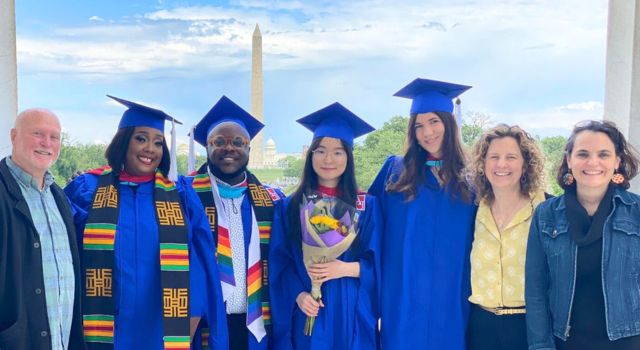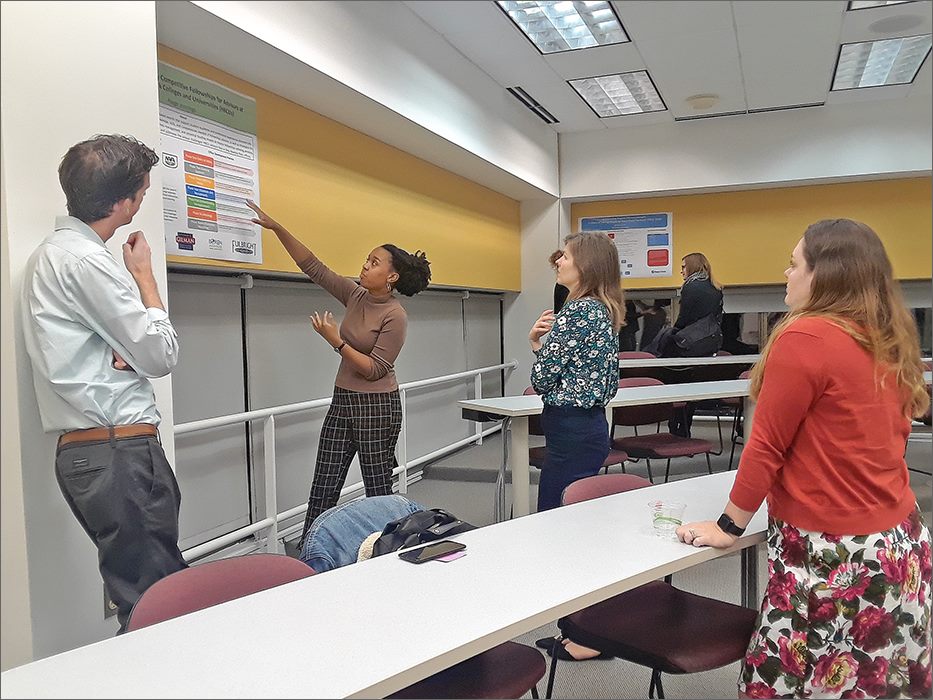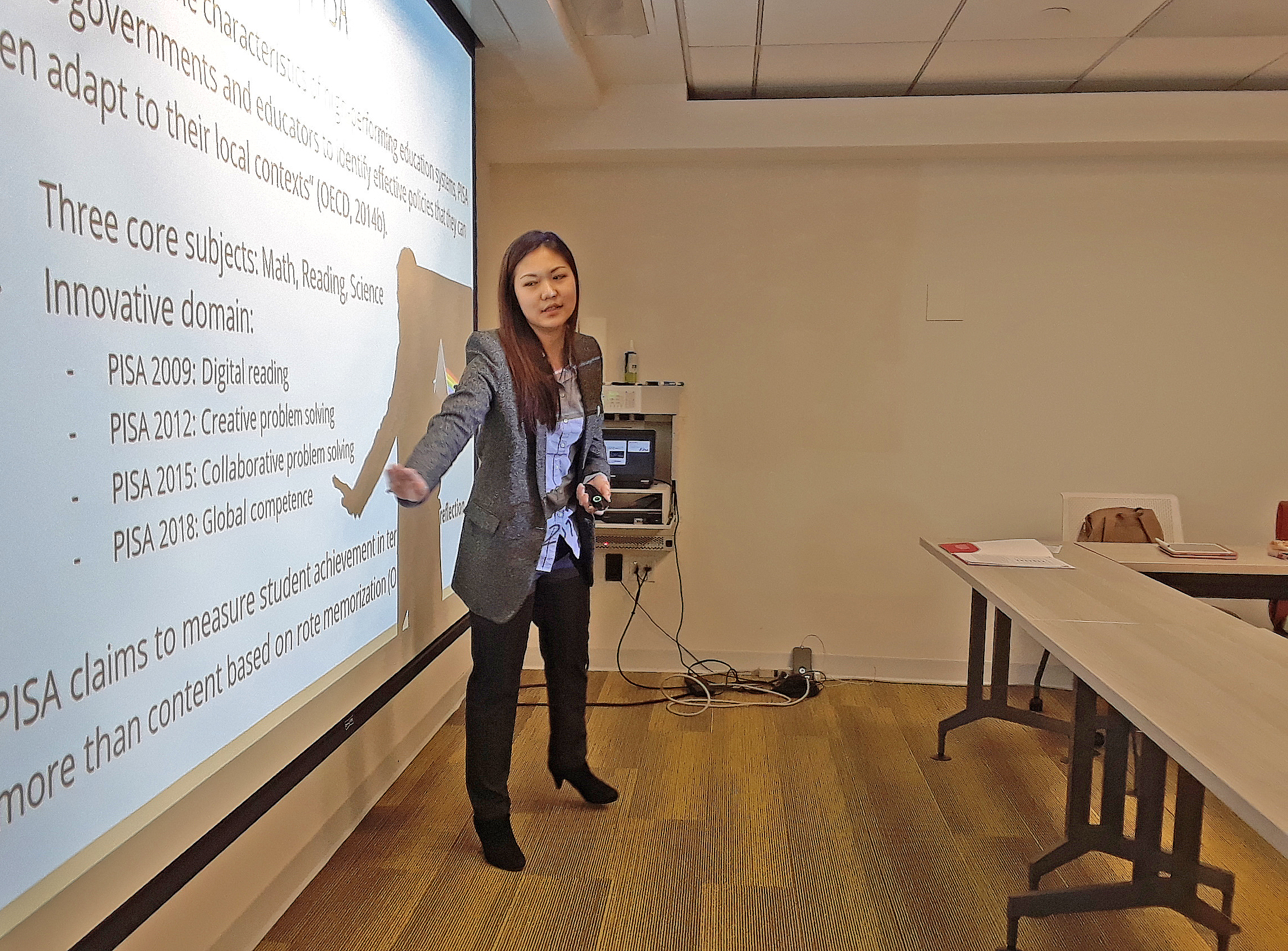Contact Us
Spring Valley Building , Room 471 on a map
4801 Massachusetts Avenue NW Washington, DC 20016-8030 United StatesRecent News
- 2023-2024 for ITEP started strong with a Fall Meet & Greet to welcome everyone back and to bring new students into the MA and certificate program. For International Education Week, ITEP held a panel with the Echidna Global Scholars at the Center for the Universal Education at the Brookings Institution where they presented their research in India, Bhutan, Egypt, and Uganda. In November, the Alternative Pathways forum welcomed alumni Beck Waghorne, Julia Bouchelle, and current ITEPer Maddy Crawford who shared their experiences in the program and the impact that had on their career paths. To wrap up the year, the cohort celebrated with holiday gatherings and a "secret jingle tingle" gift exchange. In the spring semester, we hosted the annual student research conference which welcomed a wide array of graduate student research presentations from American University, George Mason, University of Maryland, and George Washington University.
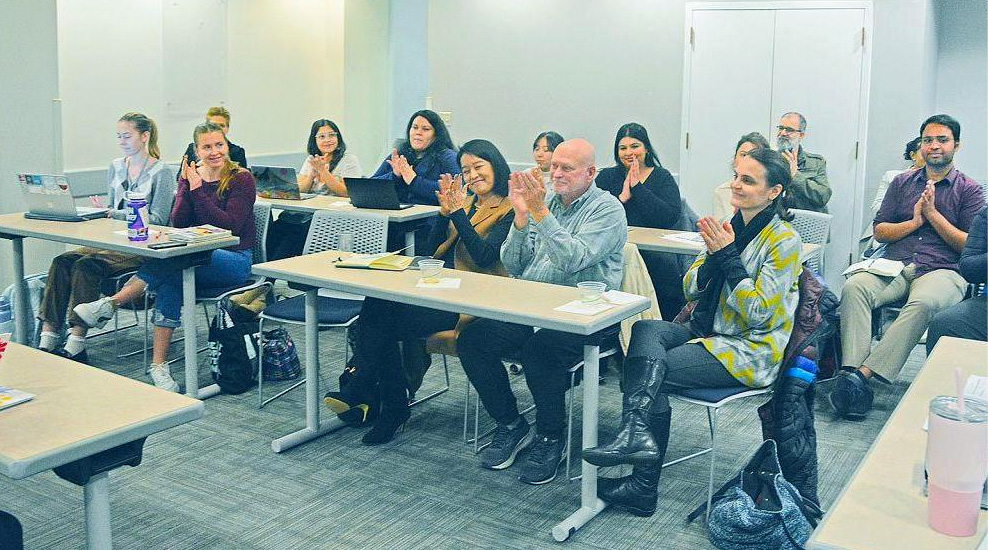 ITEP graduate students Kim Linford, Maddy Crawford, and Paige Dabney presented their papers. Over spring break, ITEP faculty Drs. Elizabeth Worden, Jisun Jeong, Terence Ngwa, and Michael Gibbons participated in the Comparative and International Education Society annual conference in Miami. We wrapped up the semester with the Charles Tesconi Lecture, where Dr. Supriya Baily of George Mason University spoke about education in authoritarian times. Join us for more in the future!
ITEP graduate students Kim Linford, Maddy Crawford, and Paige Dabney presented their papers. Over spring break, ITEP faculty Drs. Elizabeth Worden, Jisun Jeong, Terence Ngwa, and Michael Gibbons participated in the Comparative and International Education Society annual conference in Miami. We wrapped up the semester with the Charles Tesconi Lecture, where Dr. Supriya Baily of George Mason University spoke about education in authoritarian times. Join us for more in the future! - Global Education Forum
Throughout the year, ITEP hosted a range of speakers for its signature event, including: Mariana Barros-Titus and Corey Shaw presented “Education as an Exercise in Reparative Justice”; Dr. Judith Pace gave the 2nd annual Charles Tesconi Lecture with “Learning to Teach Controversial Subjects in Divided Societies”; and Dr. Sabrina J. Curtis and Ellen Chigwanda discussed “Critical Approaches to Education Research: A Conversation on Engaging with Adolescent Girls in the U.S. and Zimbabwe" - Comparative and International Education Society Conference (CIES)
ITEP sponsored 20 students to attend the 2023 CIES Conference in Washington, D.C. in February. ITEPers joined over 3,600 participants in the 1,000 sessions offered. Faculty members Dr. Jisun Jeong, Dr. Elizabeth A. Worden, Dr. Michael Gibbons, and ITEP student Alex Medadi presented research. ITEPers also networked with practitioners at a career event hosted by Chemonics. Professor Worden took a group of 15 international scholars to visit Martha’s Table, a non-profit serving the DC residents. - Experiential Learning Trip to Senegal
ITEP faculty member and SOE Scholar in Residence Dr. Michael Gibbons and ARASL Director Dr. Terence Ngwa led “Historical and Transatlantic Perspectives on Antiracist Teaching,” SOE’s first ever study trip to Senegal.
Frequently Asked Questions
When can I start?
Students may begin the program in the Summer, Fall or Spring semester. Both full time and part time schedules are available, though international students are required to be in full-time status during the entire program of study (with special exceptions made in the final semester of study).
Can I take online courses towards my ITEP degree or certificate?
Yes. ITEP offers a number of required courses online, as well as electives for both the degree and certificate program.
How long does the ITEP program take to complete?
Most students take two years to complete the MA program, but it can be completed in as little as 15 months, including summer study. The Certificate program can be completed at the students’ pace, but is typically a 9-month program.
Can I work full time during the program?
Both full-time and part-time schedules are available; however, international students are required to maintain full-time enrollment during the entire program of study (with special exceptions made in the final semester). Many of our students do have full-time jobs while in ITEP.
To accommodate students who work full-time, most classes are offered at 5:30pm or 8:20pm ET.
What is the MA Capstone?
ITEP students develop and complete a capstone project usually during their final semester of the MA program through EDU 685: ProSeminar in International Education. The main objective of the capstone is to help students consolidate, integrate, and advance knowledge and skills acquired through ITEP. Students work with the ProSem instructor (a Core ITEP faculty member) to design and finish their project.
The capstone includes the following elements: a literature review, an analytical writing component, and original research. Some examples of capstone topics include a program evaluation, a program training design and implementation, and qualitative research project.
Can I get credit for my past coursework and experience?
Transfer Credit from Accredited Institution
MA students can transfer in a maximum of 6 credits from another university provided that these credits have been earned at the master's level from an accredited institution, and is relevant to the ITEP program of study.
Credit Waiver for Volunteer Experience
In the past, when ITEP's program was 36 credit hours, incoming students could apply for credit waivers of up to 6 credits based on previous volunteer experience. Because of the reduction of required credits to a 30 hour program, students are no longer eligible for a credit waiver based on previous volunteer experience.
Can I do an internship or go abroad during the program?
Yes. Each MA student is assigned to a faculty advisor at the start of the program. The advisor can help students decide if an internship or experience abroad will enhance the students’ program of study and/or career goals.
ITEP Gallery
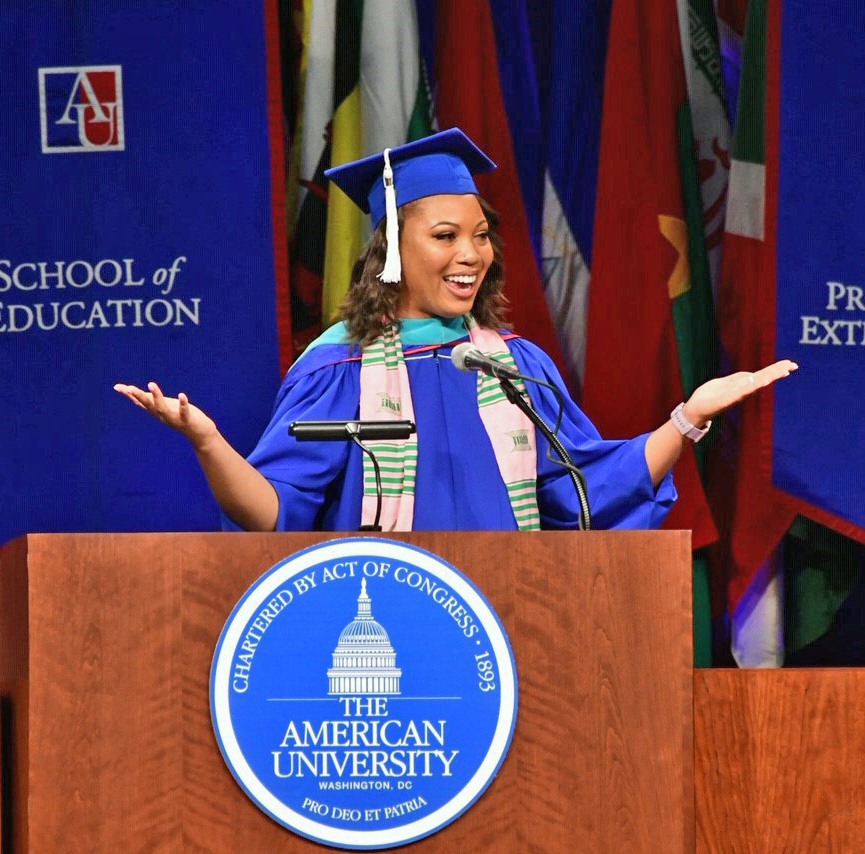
ITEP 2019 graduate La'Nita Johnson gives a commence-
ment speech.
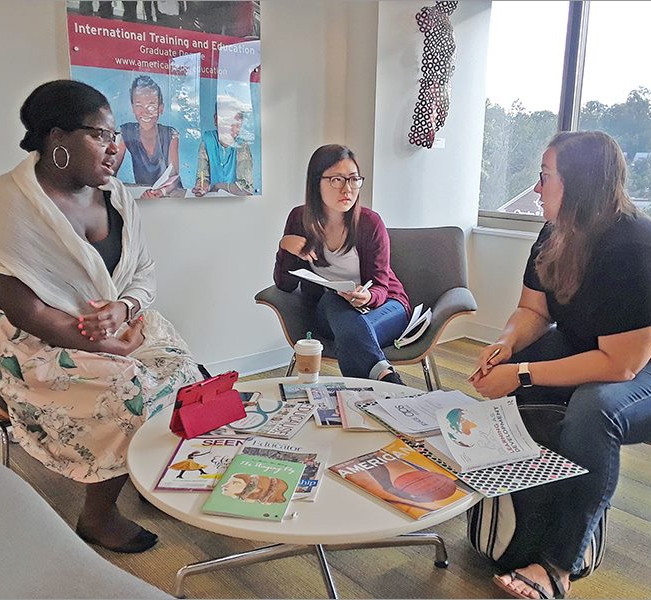
ITEP Students in School of Ed Lobby
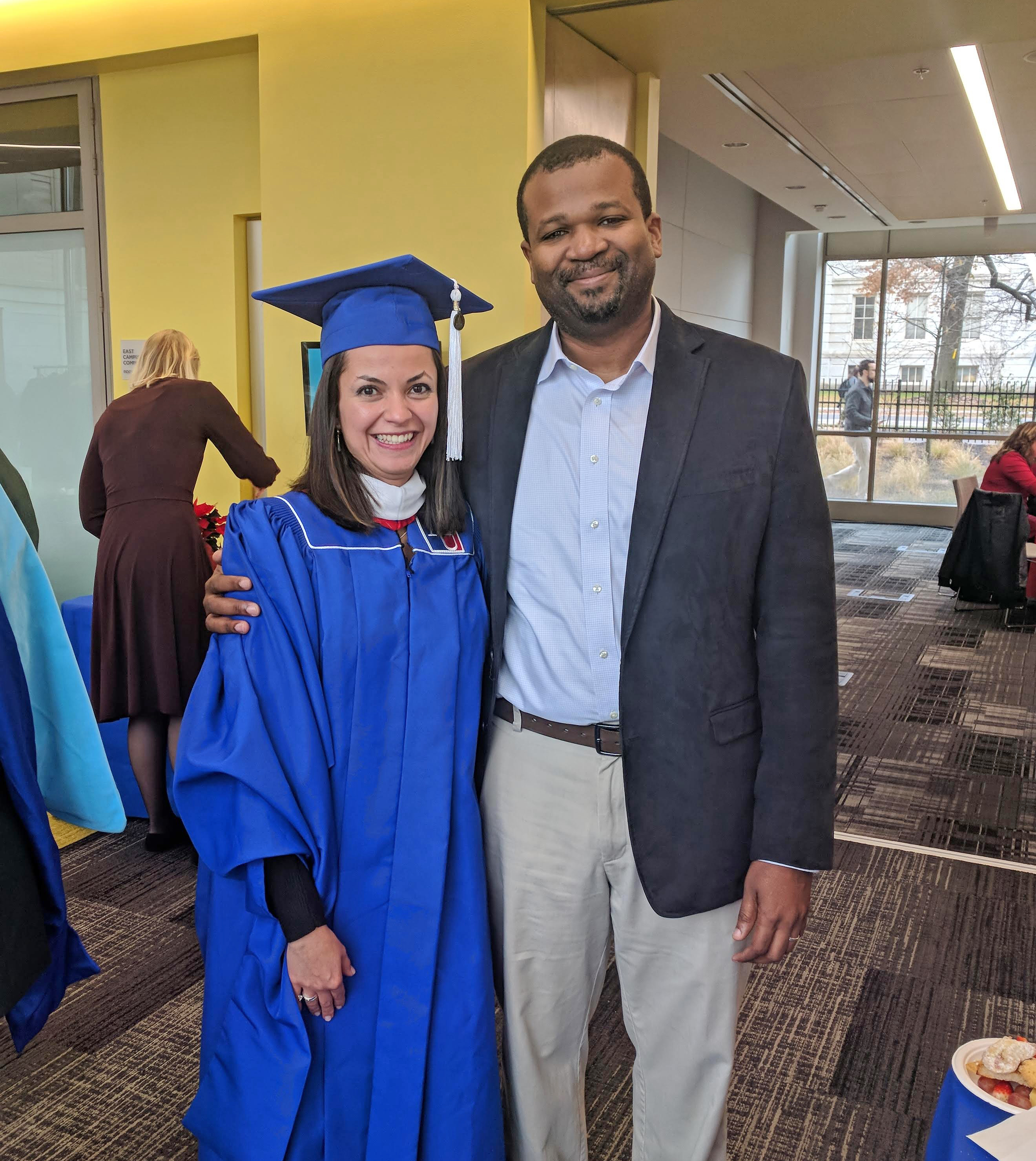
Former ITEP Faculty Member Jermain Griffin and ITEP Alum ('18) Lisbeth Gall

ITEP Professor Cynthia Miller-Idriss critiques a student's poster presentation.
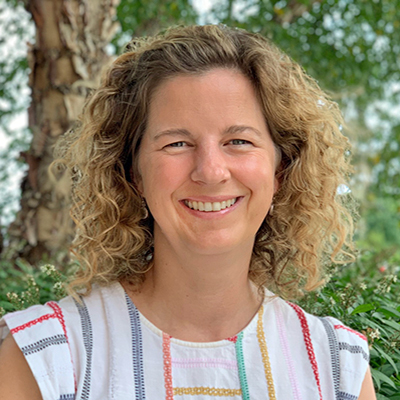
ITEP Program Director Elizabeth A. Worden
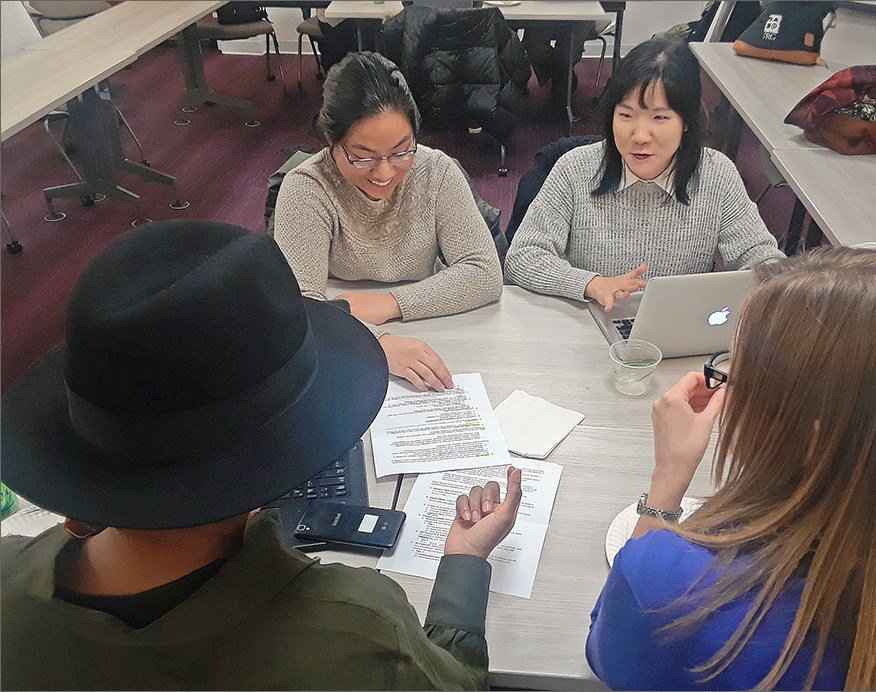
ITEP EDU-642 (Training Program Design) Students

ITEP Students at Global Education Forum
Global Education Forums

Join Our Conversation
The School of Education’s International Training and Education Program hosts monthly Global Education Forums (GEFs), discussions on pressing topics in international education, international development, and intercultural exchange. Join our conversations with experts, who offer their viewpoints and experiences as practitioners, researchers, and activists. Audience participants will have the opportunity to ask questions and join the dialogue.
Learn more about the ITEP Global Education Forums.
